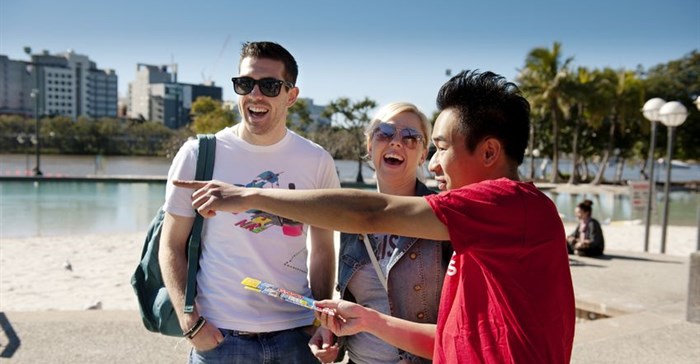Top stories






More news





ESG & Sustainability
#Sona2026: President announces crisis committee to tackle SA's water challenges









A tourist guide organisation claims that as many as 50% of guides operating in some of the country's most popular tourist destinations are not legally registered. The risks for the sector include substandard guiding practices that reflect badly on registered guides and wildlife tourists being exposed to dangerous animals while in the company of untrained tourist guides.
Deputy director-general of policy and knowledge systems at the Department of Tourism Shamilla Chettiar said the amended act did not allow individuals to act as tourist guides if they were not citizens or ordinary residents of SA.
The amendments also disqualified those who had not undergone adequate training and completed registration, as well as those who had been convicted of an offence in SA or abroad, she said. "The amended act is clear on how to deal with illegal guides. Laying a formal complaint can be done with the registrar. The enforcement is the competence of the South African Police Service.
"We have launched awareness campaigns on this issue. If the registration of a guide is compromised there are steps to follow."
The Tourism Act of 2014 sets guidelines on the tour guide industry and a code of conduct within the profession. The department has sought to apply consistent standards between national and provincial tour guide registrars. Guides must be registered in terms of section 50 of the Tourism Act. Each registered guide's status will be valid for three years. Tour guides found guilty of misconduct could be fined up to R10,000.
Uveshnee Pillay, director of tourist guiding in the department, said the industry should improve generic skills including customer relations, computer literacy, and research. "There are a number of generic skills that guides should have when they enter the sector and that creates a challenge," Pillay said.
Johan van Biljon, of the Gauteng Tour Guides Association, said that while the industry was held to high standards, the prevalence of illegal tour guides had to be policed better. The association's unofficial estimates on illegal tour guides showed that as many as half of the tourist guides in a site such as Vilakazi Street in Soweto were not registered, he said.
"We need policing for what we have in law. There is a criminal code for illegal guiding. No one except the registrar has the power to go and pursue the case."
Van Biljon said registered tourist guides often had to contend with taxi drivers masquerading as tourist guides. The negative reception ultimately reflected poorly on registered tourist guides, he said.
Source: Business Day

For more than two decades, I-Net Bridge has been one of South Africa’s preferred electronic providers of innovative solutions, data of the highest calibre, reliable platforms and excellent supporting systems. Our products include workstations, web applications and data feeds packaged with in-depth news and powerful analytical tools empowering clients to make meaningful decisions.
We pride ourselves on our wide variety of in-house skills, encompassing multiple platforms and applications. These skills enable us to not only function as a first class facility, but also design, implement and support all our client needs at a level that confirms I-Net Bridge a leader in its field.
Go to: http://www.inet.co.za